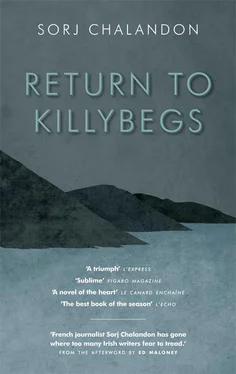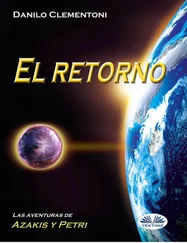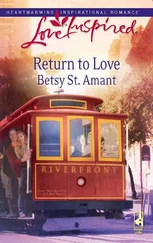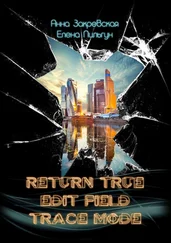I walked through the pub paying no heed to all the looks. I took off my rain jacket and hung it on the coat stand, then I moved the coat stand. I dragged it over to its usual spot on the other side of the room, scraping its curved feet over the greasy floor. After that I lifted my father’s table with my Meehan arms. The same as his, fists at the end. I took a chair from a pile by the door. I didn’t carry it, I dragged that along too, slowly. I propped its back against the wall, as it had been since my childhood. Then I took out my mobile phone and plugged it into the wall to charge. I took electricity wherever I found it. And then I went to the bar. Two Guinness straight off. Not a word. I just tapped twice on the Guinness tap with my index finger. The barman shot a questioning look at the owner who shrugged his shoulders before disappearing down to the basement to change a keg. So the barman carefully pulled my pints in two stages, the glasses tilted in his farmer’s hand. His eyes never left me. Over the thick liquid, the white frothy cream, our eyes locked. My forehead was raised but I wasn’t challenging him. I was Padraig and Tyrone, with the dignity of one and the weakness of the other. I was calmed. I went back to my father’s table and drank the first pint in one go, a hearty swig of earth.

Father Gibney was watching my reflection. Sitting on his barstool, back to the room, his eyes had followed me in the flecked mirror that hung over the bar. Séamus Gibney, a huge priest who did the rounds of the pubs every day after the Angelus to remind the men that there was Mass on Sunday. He had only to raise his voice to break up a scuffle, had only to tell each man off to get them to shake hands.
But that evening the priest didn’t have to raise his voice. After I arrived, nobody had touched the coat stand or the table, and none of those men had come to challenge me. The pub had gradually returned to its usual state.
Séamus Gibney was sitting in front of a forgotten glass of whiskey when the door opened. He instantly swivelled on his stool to face the door.
— Well would you look who it is! Joe McCann! Good old Joe!
The other slapped his cap against his thigh, cursing the heavens to have arrived in the pub at this particular time.
The priest’s loud voice was directed at the crowd.
— I’ve a good one for you, Joe, listen to this…
McCann knew what to expect. When a Mass deserter ventured into the pub, the priest would welcome him with his glass raised, call him by his first name, tell him the joke of the day and then the reproaches would begin.
— So here it is: Joe McCann’s walking out of the church and bumps into Father Gibney. ‘Did you like my sermon?’ the priest asks him. ‘Oh yes, Father. Thanks to you, I learn about new sins every Sunday!’
The priest burst out laughing, and the room with him.
— Come on, Joe… have a seat.
McCann moved towards the bar and the priest’s open arms, ready to be chastised.
— I was worried, Joe, you know? You have to check in from time to time.
The priest reflected while miming the pulling of a pint to the barman.
— It must be, what? Two, three months since we’ve seen you at the office?
A cheerful voice piped up from a corner of the pub.
— Maybe even longer!
— Maybe even longer, Joe. Maybe even longer.
The priest laughed and handed Joe his pint of Guinness. Then he clinked glasses with him. The sinner with his pint of ink, the priest with his glass of gold.
— And if you were to come to Mass tomorrow? If you were to come along with Nelly and the children? Hmm? What do you say, Joe? Isn’t that a good idea? And of course you’ll sit up in the front row because of your ear, okay?
The arm on the shoulder, a sugary smile, a quick glance towards the ceiling.
— And you know, I believe He’s been missing you, too…
Joe nodded and smiled dolefully before bringing the glass to his lips. I lifted mine. It was almost empty and the barman filled the next one.
That’s when Father Gibney got down from his stool. He took a chair and sat opposite me.
— May I?
— You may.
He had brought his drink with him. He drank it down in one go.
— An old friend wants to see you.
He spoke in a murmur, his elbows on the table and his hands joined in front of his mouth. He stared at me strangely. I was tense.
— To see me?
— And also to hear you.
I took a slow swig, my lips dipped in the creamy head. I was searching for something hidden deep in his eyes.
— To hear me?
— If you wish it, yes.
Hear me? I didn’t like that kind of listening. I had admitted my guilt and there was nothing else to say. I slammed my pint down on the wet table. I had understood.
— Are you referring to Josh?
My words hung in the air, my rasping voice.
The priest winked at me.
— Yes, Josh. He’s a Franciscan, lives in a monastery in Athlone.
— Josh, I repeated, and my heart felt as though it was held between claws.
— We call him Father Joseph Byrne now. He’s back home for two days.
Joseph Byrne, Father Donoghue’s angel. The kid who used to sing for our ragged wee troupe in the bog. Josh the leprechaun, the pixie who used to say grace, who prayed for us, who had stood up to the Gormley brothers without ever rolling up his sleeves.
— He wants to meet you. He told me to pass on the message.
— He wants to meet me? But why? What does he want?
My tone was getting aggressive. That was the anxiety.
The priest left my table. A meeting at St Mary’s tomorrow? It was an order. The day after, Josh would leave for Belfast. I said yes, no problem, of course. To see him, not to be heard. To be completely certain that God wasn’t making a martyr of him.
Uncle Lawrence died on 17 March 1942, St Patrick’s Day. A roof had abruptly given way under his weight. He slid and fell backwards, his eyes staring up at the sky and his arms wide open. The day he was buried, I had the impression that the whole of Ireland had turned up. Behind the bagpipe player in his kilt, Mother led the procession, a flimsy wreath in her hands. Then came Róisín, Mary, Áine, wee Kevin, Brian, Niall and Seánie. I was carrying baby Sara in the first row of men.

Lawrence Finnegan was not a member of the IRA, but the movement had done him the honour of flying the flag at his funeral. It was carried by a Fianna and it curled in the wind. There were hundreds of us. Many of those faces had come from elsewhere. Seánie and Tom Williams helped carry the coffin, but not me. It was passed from shoulder to shoulder without anyone beckoning me. I was too young, or too small, only good for accompanying the dead. I wasn’t sad, although sadness, in Ireland, is the last thing to die. I walked with the neighbours, the friends, the former prisoners. I followed the IRA soldiers, three long, black columns stretched along the avenue. I was proud of that crowd, content to belong both to the Meehan and the Finnegan families. Proud also of walking in the steps of Tom Williams, my leader.
Local mothers used to whisper that Tom Williams carried too much grief inside. Fathers said that faced with those eyes, death would recoil. His brow was always furrowed, lined with pain. When an emotion choked him, he would become tense. He was pained. He’d find it hard to breathe — a childhood asthma that used to choke him. I made him laugh once. I knew that wee Tom was hiding behind that melancholy.
The evening of the funeral, he and I talked of all the death in our lives, the misery that engulfed us all. He told me of the death of his sister, Mary, struck by meningitis at the age of three, that of his mother, also Mary, who left the world at nineteen years of age, giving birth to a daughter who died in turn six weeks later.
Читать дальше













